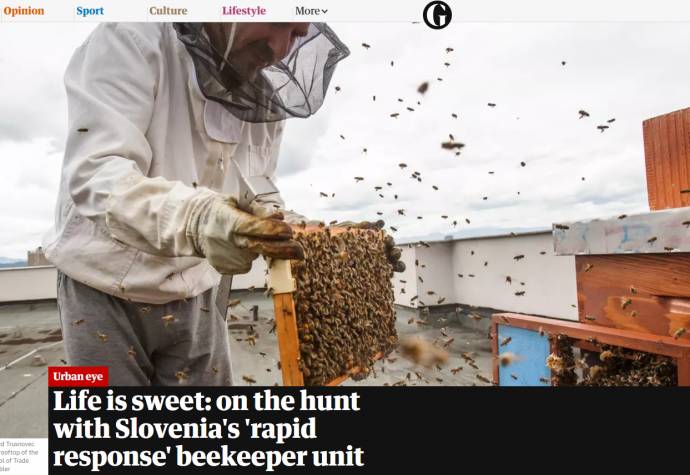For a small country of around two million people, Slovenia punches above its weight on the global stage in a variety of ways. One of them is honey and beekeeping, and around one citizen in 200 is a registered beekeeper.
Slovenia's love of honey dates back centuries, and Anton Janša is considered the founder of modern apiculture for his work as a teacher of beekeeping in Vienna during the reign of Maria Theresa. So important is beekeeping to Slovenians that they were instrumental in the founding of World Beekeeping Day on May 20, which happens to be the birthday of Anton Janša - he was born in 1734.
Slovenia's love of honey regularly attracts the interest of international media, and the latest to report on the topic is The Guardian in the UK, with a focus on the beekeeping 'rapid response' units of Ljubljana:
A storm is coming over the green hills that surround Ljubljana and it is making the bees anxious. Normally, urban beekeeper Gorazd Trušnovec would call it a day when the weather starts to turn. Instead, he is up a ladder, 12 metres (40 feet) above a city road, facing a squirming mass of bees in a tree top. He will have to shake them, together with the runaway queen bee, into a bucket.
Trušnovec is part of the Slovenian capital’s rapid bee response unit. He and six others are on call, ready to be dispatched through the emergency number 112 if a swarm escapes from an apiary. This can happen in big, thriving colonies when a queen bee, along with a team of workers, decides to strike out on her own.
“Two years ago, the situation was critical. Up to five swarms a day were physically impossible for us to collect, so the city organised a response team,” Trušnovec says.
Read the full article here, and then check out more about Slovenian beekeeping and World Beekeeping Day in the video below.






